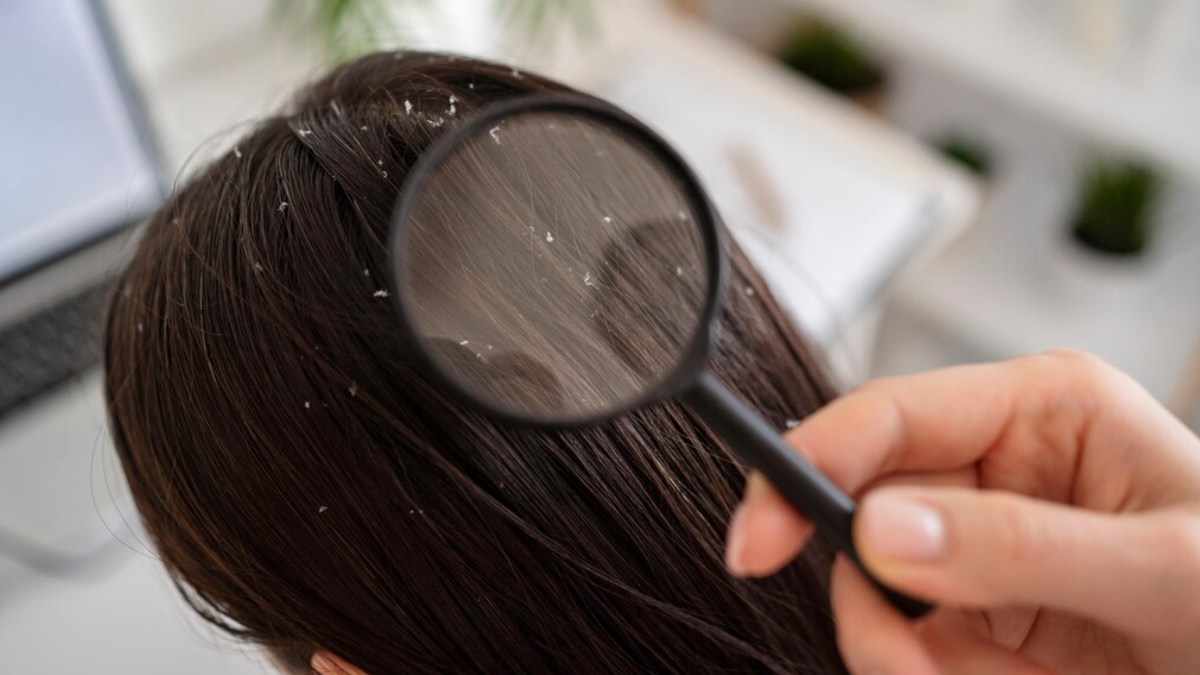
Do you remember those days of your childhood when your mother or grandmother gently massaged your scalps with oil before bedtime? It's a tradition deeply rooted in our culture, passed down through generations as a remedy for various hair troubles. One of the claims associated with this age-old practice is that oiling hair can reduce dandruff. But is it true? We spoke to our expert Dr Ipshita Johri, Dermatologist and Aesthetic Consultant, Laser Specialist and Founder, Skinfinity Derma, who answered if oiling can reduce dandruff.
Hair oiling has long been considered an essential component of a healthy hair care routine as a solution for dry and damaged hair. Dr Johri said, “The idea that oiling can reduce dandruff stems from the belief that applying oil to the scalp promotes hair growth and maintains soft, dandruff-free locks. However, the connection between hair oiling and dandruff reduction is not as straightforward as it may seem.”
What causes dandruff?

Dandruff, an often embarrassing problem, can be caused by various factors. According to the International Journal of Dermatology, the intensity of dandruff can vary with the seasons, typically worsening during the winter months.
Dr Johri added, “These may include fungal infections, inadequate moisture in the scalp, or excessive use of hair products. It's easy to see why people might turn to hair oiling as a solution, but there are some important myths to explore.”
Also Read: Beware Of Beard Dandruff: Here's What Causes It And Ways To Get Rid Of The Skin Condition
Myths And Facts About Hair Oiling

Myth 1: Leaving Oil Overnight is Beneficial
Fact: One common misconception is that leaving oil in your hair overnight is beneficial for dandruff. Dr Johri said, “Prolonged exposure to oil can worsen the condition. The excess oil can trap dead skin cells and provide a breeding ground for the fungus responsible for dandruff.”
Myth 2: You Should Oil Your Scalp
Fact: Contrary to popular belief, it's not necessary to oil your scalp. Dr Johri noted. “Oiling the scalp excessively can lead to clogged pores and worsen dandruff. Instead, focus on applying oil primarily to the hair strands, avoiding the scalp or using a minimal amount if necessary.”

Myth 3: Oiling Controls Dandruff
Fact: The most significant myth of all is that oiling effectively controls dandruff. Dr Johri said, “Dandruff requires specific treatments designed to address its root causes, such as antifungal shampoos or medicated solutions. While some natural oils like tea tree oil may have mild antifungal properties, they are not a standalone cure for dandruff.”
Also Read: Do You Pluck Your Grey Hair? Expert Explains If It Turns The Rest Grey?
Myth 4: Oiling Helps Reduce Hair Fall and Promotes Hair Growth
Fact: Dr Johri said, “While oiling can provide temporary nourishment to your hair, it doesn't necessarily reduce hair fall or promote hair growth. Hair fall and hair growth are influenced by various genetic, hormonal, and environmental factors, and applying oil alone cannot address these underlying causes.”
Bottomline
Dr Johri concluded, “While the practice of oiling your hair is deeply ingrained in many cultures and can offer benefits like nourishment and shine to your hair, it's not a definitive solution for dandruff. To effectively fight dandruff, identify its underlying causes and use targeted treatments recommended by a dermatologist.” So, the next time you reach for that bottle of hair oil, remember that it may not be the magic cure for dandruff you've always believed it to be.
[Disclaimer: This article contains information provided by the expert. However, we advise you to consult your expert if dandruff persists for a long time.]







